
In addition to focusing on short-term training, the city focuses on long-term programs, aiming to equip practical skills and knowledge suitable to the actual needs of businesses.
Training based on market needs
In early 2025, Nguyen Van Tuan (22 years old, Son Tra ward) left the army and returned to his hometown. With financial support from the Department of Labor, War Invalids and Social Affairs (now the Department of Home Affairs) to study auto technology, he quickly registered to study at Da Nang College.
On the first day of class, Tuan was quite worried: “I think I am behind my peers because of two years in the army. I wonder if I will be able to find a job after finishing my apprenticeship?” However, the flexible training program with an emphasis on practice helped Tuan quickly catch up. In addition to theoretical lessons, he directly practiced at the school’s repair shop, coming into contact with new engines and equipment.
“When I started studying, I found that the auto technology profession was both difficult and interesting. The teachers taught me how to identify engine errors, maintain gearboxes, and let me practice on cars. The more I studied, the more interested I became, and I felt that I could stick with this profession for a long time. I will study more to get a vocational certificate, to be more confident when entering the labor market. My dream is to accumulate a few years of experience and then open my own garage in Son Tra. Without the vocational training support policy, I probably wouldn't have had the opportunity to think that far,” Tuan confided.
Not only young people, many rural women in Da Nang are also benefiting from the vocational training policy associated with job creation. Ms. Nguyen Thi Hai (35 years old, Thanh Binh commune) used to be a farmer with an unstable income. Since the Commune Women's Union coordinated with Dat Quang Green Areca Cooperative to open a free handicraft weaving class, she arranged her farm work and registered to attend.
“My family has a areca garden, which used to produce a lot of them but I didn’t know how to take advantage of them. Now, after studying, I know how to make baskets, boxes, and trays to sell to the cooperative, and earn a few million VND each month. The work is easy, I can do it at home, it’s convenient for taking care of my children and also brings in extra income,” Ms. Hai said.
The Dat Quang Green Areca Cooperative regularly organizes classes on weaving areca spathes, rattan, and bamboo based on funding support from the People's Committee of Thanh Binh Commune. The products are guaranteed by the Cooperative, helping students feel secure in their profession. Not only Ms. Hai, many women in the commune also participate to earn more income. This is a new direction when taking advantage of available raw materials, connecting farmers with the cooperative economic model, increasing income and improving life.
Ms. Vo Thi Thu Thoi, Director of Dat Quang Green Areca Cooperative, said that each vocational training class usually has 30-40 participants, funded by Thanh Binh commune from the new rural development budget. Based on this policy, the cooperative mobilizes skilled workers to directly teach, and products made that meet the criteria of beauty and durability will be supported for consumption.
Humanitarian policy towards workers
In addition to the free vocational training program for demobilized soldiers and rural workers, Da Nang pays special attention to unemployed workers, the disadvantaged and disadvantaged youth. Through the City Employment Service Center, many free vocational training classes are held periodically, along with job counseling and referral sessions.
Director of the Da Nang Employment Service Center Tran Trung Kien said that in the first 6 months of the year, 766 businesses and establishments posted recruitment information for 26,980 workers on the job exchange floor. In particular, the focus is on groups of occupations in the processing and manufacturing industries, accommodation and food services, garments, and metal component production... This is also the basis for the center to advise and organize free vocational training classes to meet market needs.
“The difference of Da Nang is that it does not provide widespread training, but relies on labor market data to grasp which industries are in need of human resources to open classes. Thanks to that, the rate of students having jobs after training is increasing,” Mr. Kien added.
In fact, when vocational training courses are linked to direct recruitment, the rate of students finding jobs immediately after graduation is over 80%. Many businesses also support additional scholarships and internship allowances to retain students. From there, workers have the opportunity to study and work, accumulate experience and income, helping them feel secure in their long-term career.
Sharing this view, Mr. Dinh Thanh Tung, Director of Nippon Tsubasa Education Company, affirmed that currently, Japanese enterprises regularly recruit high-quality workers in the fields of mechanics, information technology, machine manufacturing industry, etc. On this basis, the company directly works with Danang University to connect recruitment needs with the training capacity of member schools.
In addition, many opinions say that the city needs to continue to improve the labor market data system to connect students, training facilities and businesses. When the system is completed, information on training occupations, recruitment needs, and skills shortages will be continuously updated, helping workers to more clearly orient their learning and job search paths.
Principal of Da Nang College Ho Viet Ha hopes that this will be an important tool for the city to manage, forecast and regulate labor supply and demand. On this basis, instead of training according to available capacity, schools will orient training according to market demand, avoiding surplus or local shortage of human resources. The ultimate goal is to ensure that vocational students after graduation can find suitable, stable long-term jobs.
In recent times, many pilot models have demonstrated the effectiveness of this connection. In the tourism and service sectors, training courses in housekeeping, reception, and food preparation were opened right before the peak season. Students who have just finished studying are recruited by hotels and restaurants, creating a closed circle between training and employment.
In the high-tech industry sector, many enterprises in Da Nang High-Tech Park coordinate with vocational schools to organize training programs according to orders, ensuring that graduates meet production requirements.
It can be seen that the vocational training policy associated with employment is no longer a short-term solution, but has become a long-term strategy in developing high-quality human resources. Thanks to that, the journey of establishing a career for workers has also become more open, contributing to creating a skilled workforce, meeting the development requirements of the city in the new period.
Source: https://baodanang.vn/rong-duong-tim-viec-3301234.html


![[Photo] Keep your warehouse safe in all situations](https://vphoto.vietnam.vn/thumb/1200x675/vietnam/resource/IMAGE/2025/10/1/3eb4eceafe68497989865e7faa4e4d0e)

![[Photo] President of the Cuban National Assembly visits President Ho Chi Minh's Mausoleum](https://vphoto.vietnam.vn/thumb/1200x675/vietnam/resource/IMAGE/2025/10/1/39f1142310fc4dae9e3de4fcc9ac2ed0)


![[Photo] Hanoi morning of October 1: Prolonged flooding, people wade to work](https://vphoto.vietnam.vn/thumb/1200x675/vietnam/resource/IMAGE/2025/10/1/189be28938e3493fa26b2938efa2059e)
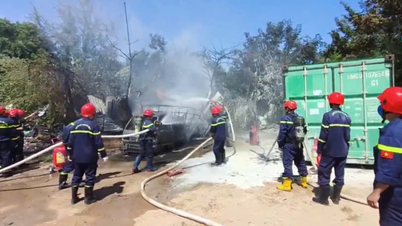







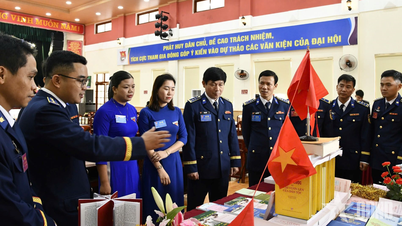

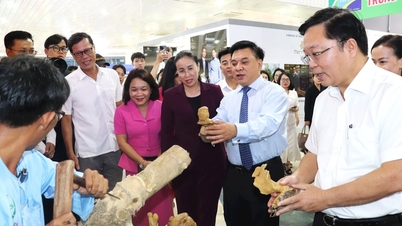
![[Infographics] An Giang Agriculture 2020-2025: Stable growth, quality transformation](https://vphoto.vietnam.vn/thumb/402x226/vietnam/resource/IMAGE/2025/10/1/bf3a77ba3a0243a697e5253ed4cd6f9c)

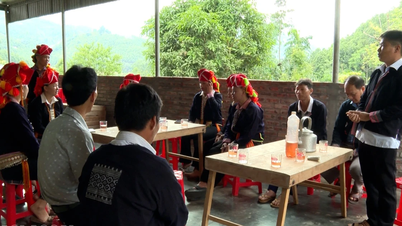













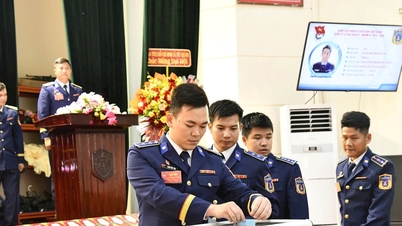

































































Comment (0)